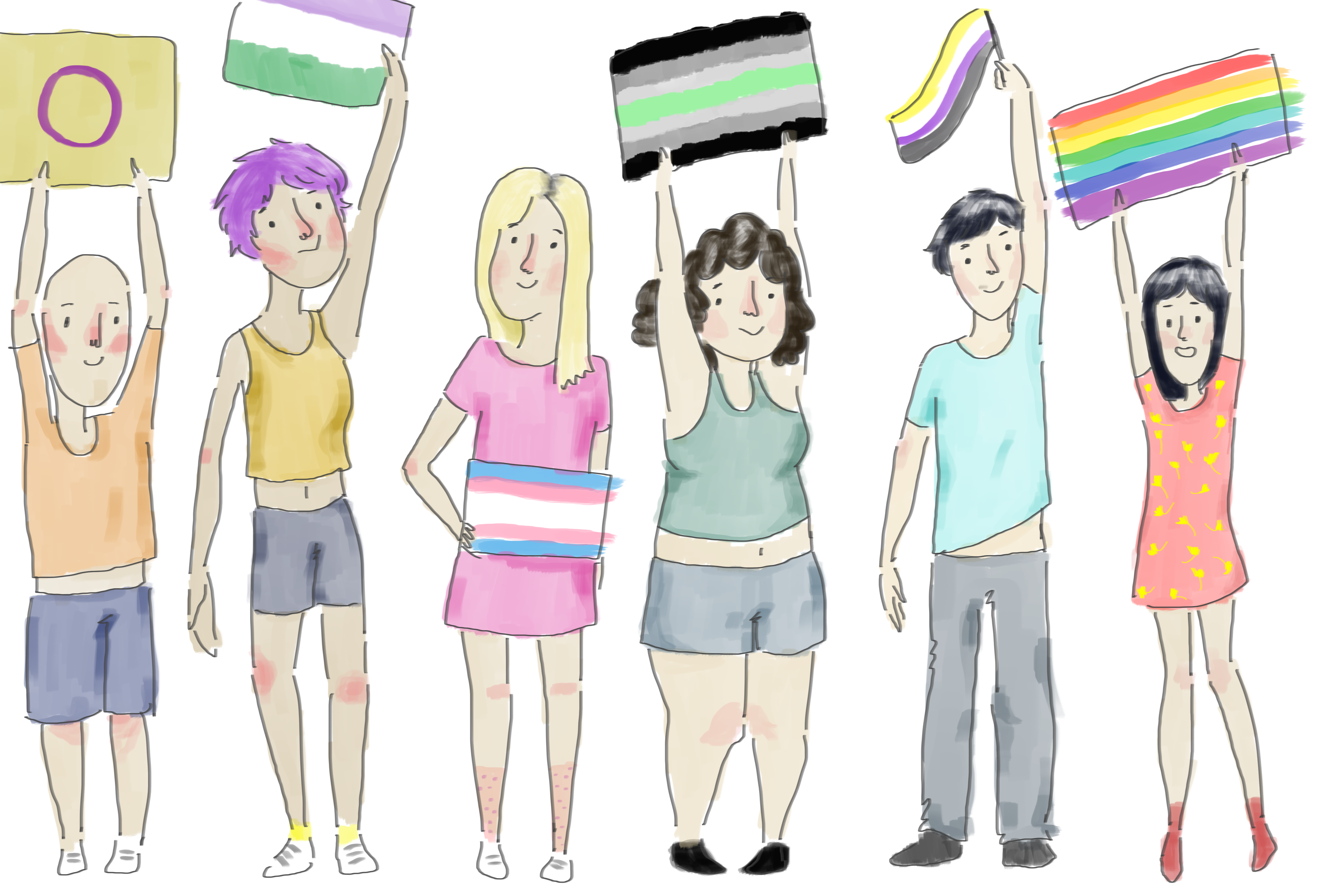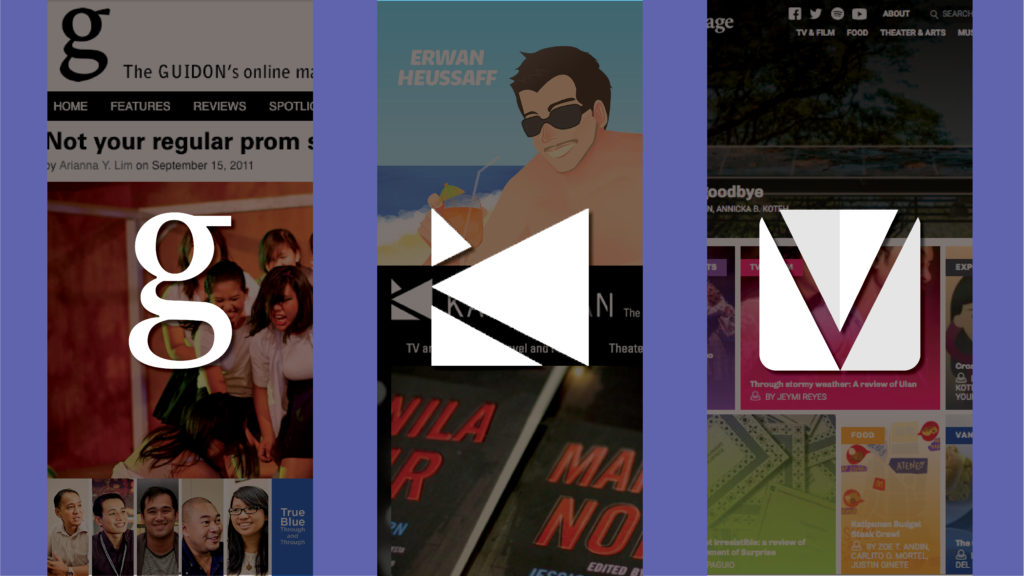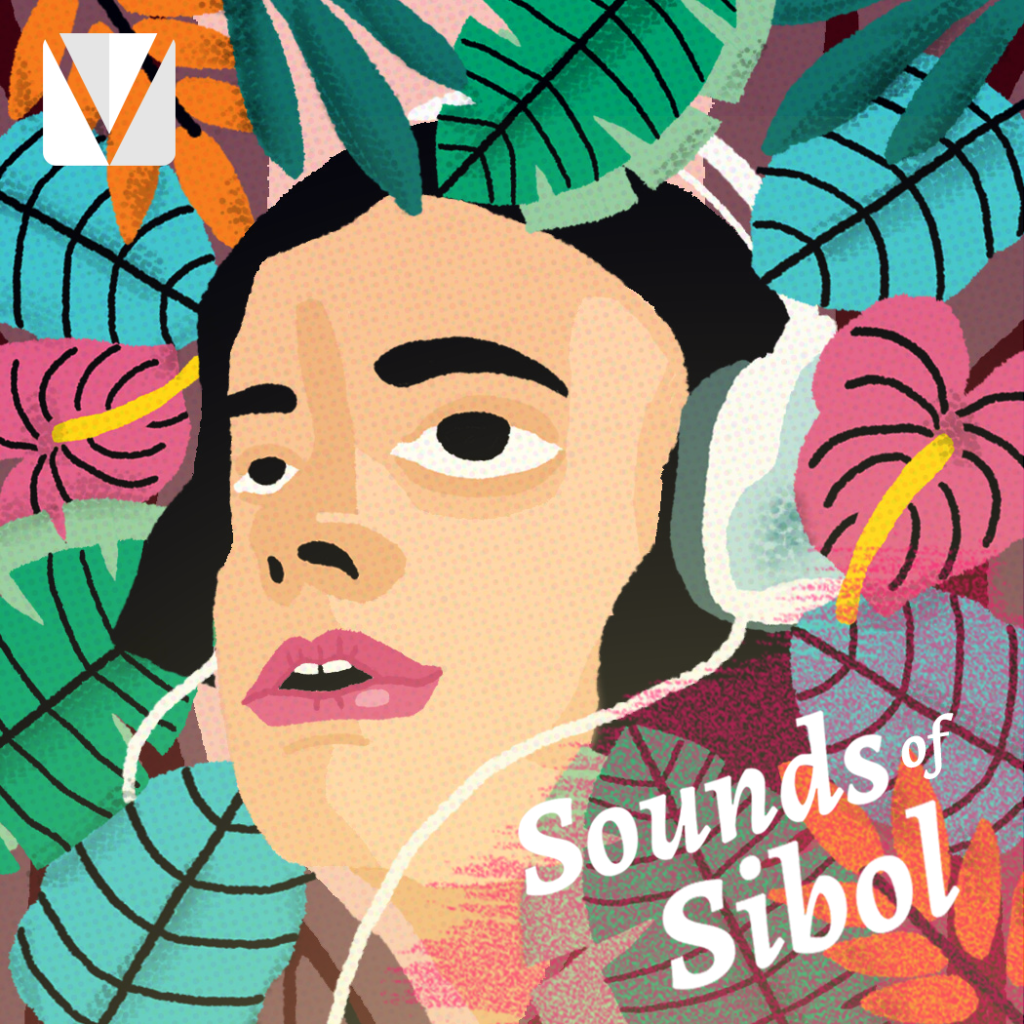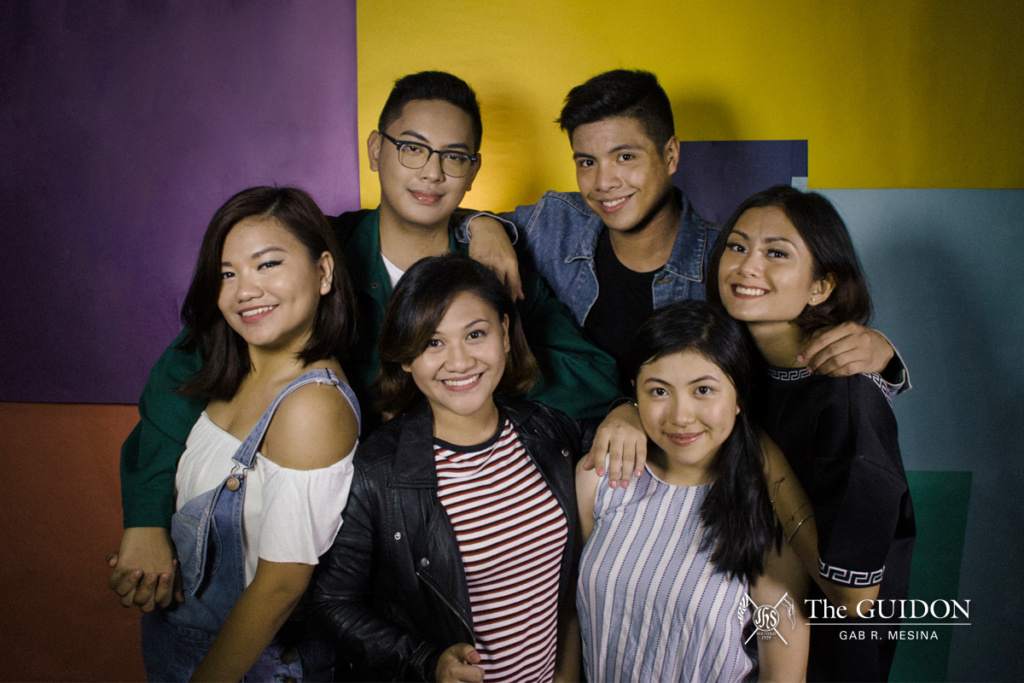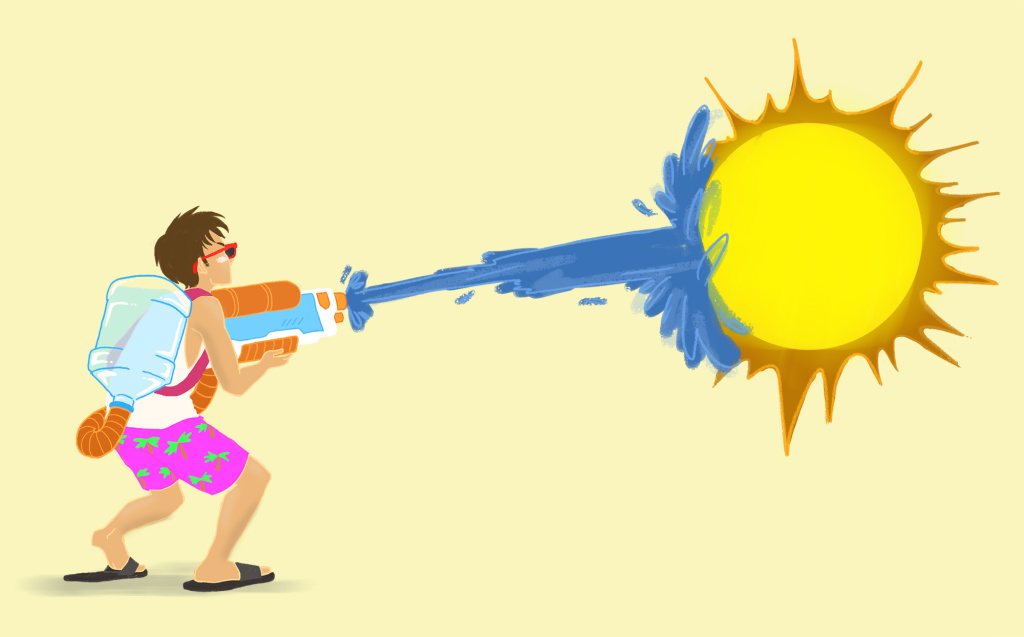Three years ago, I marched alongside a hundred or so members of the local LGBTQIA—that is Lesbian, Gay, Bisexual, Transgender, Queer (or Questioning), Intersex, and Asexual (or Ally)—community in the Metro Manila Pride March. Back then, I saw it as little more than my first actual story for The GUIDON. But to the many marchers, swathed in sequins, feathers, and gold body paint, belting their war chants in a sea of rainbow energy, it was an all-out crusade. I didn’t realize it at the time, but I was walking alongside the vanguard of a movement right on the verge of hitting critical mass.
Fast forward to 2015 and the global socio-political landscape has shifted tremendously. With Caitlyn Jenner successfully bringing transexualism into the crux of pop culture and the recent decision of the Supreme Court of the United States (US) (among those of a handful of other nations) to recognize marriage as a genuine right of all people, times have never been more optimistic for believers in gender equality.
But that’s not to say the struggle is over. With so many of us talking about gender issues and pushing for equality, it seems quite an auspicious time for discourse. If anything, the real struggle starts now.
The local scene
“Well, definitely it’s safer here,” says Miguel Lizada, a full-time instructor for the English Department who specializes in Gender and Sexuality Studies. He is referring, of course, to the general experience of members of the Philippine LGBTQIA community. “You might encounter some homophobes here and there, some discrimination, especially among the more conservative. But at the very least we don’t stone people to death or arrest them.”
The local LGBTQIA community enjoys a largely tolerant society. But like anything intrinsic to an archipelago, it depends on where you’re looking. “I think in the university setting where students and everyone in the community are exposed to this sense of plurality, there’s a particular kind of openness still,” Lizada explains.
A nuanced survey of the local atmosphere, outside this university setting, reveals a slightly less progressive picture. Here is a country that elevates people like Vice Ganda to celebrity status, but lets celebrities that tell homosexual fathers to “go back into the closet” on noontime shows off the hook, without so much as a slap on the wrist. Here we find a culture that venerates marriage and the family unit, but denies unions deemed unorthodox legitimacy in the eyes of the law—a technicality with far-reaching and often damning repercussions for those in the LGBTQIA community. The keyword is tolerance—very much distinct from their goal of acceptance.
The problem of media portrayal
Peter Lorenzana, a lecturer for the Interdisciplinary Studies Department, traces the issue back to the media we consume here in the Philippines. With an industry that recycles the same plots for every single new rom-com or soap opera, you’d think everyone in the Philippines were estranged sons and daughters of hacienderos with evil step-mothers and sassy gay best friends. Clearly, creativity and originality aren’t a big priority.
Illustrating this mindset perfectly, Lorenzana shares an opinion a friend of his in this industry expressed to him not too long ago, “Kase, pag umuwi na ang mga tao galing trabaho at nanood sila ng TV, ayaw na nila mag-isip. So, wag mo na silang i-challenge mag-isip. Gusto lang nila mag-relax (The thing is, when people go home after work and watch TV, they don’t want to think. So, don’t challenge them to think. They just want to relax).”
“So, essentially, in one blow, we just insult the entire audience while making it their fault,” he comments, laughing. “Essentially, we’re just giving you what you want. But that’s bullshit.” Other than a media brain drain, this becomes problematic because when it comes to a community as mystified as the LGBTQIA, ignorant media portrayal can be a huge roadblock to true acceptance.
Skewed images
“I have friends who write for GMA and for ABS-CBN and unfortunately, because they don’t know how to write these characters, that’s what gets put on screen,” Lorenzana shares. “If you don’t know how to write a complex [LGBTQIA] character…then the only course of action is to write about their gender, and that’s it. So you have a generation of people—these viewers—that don’t know how to look at people outside their gender.”
He adds, “You get the funny gay guy and the bossy lesbian on film, these are caricatures, these are not real people… These are boxes that you put certain people in. But you don’t necessarily portray the complexity of their identities.”
This puts into focus the importance of being critical in our media consumption, lest all we come to expect from homosexuals are that the dudes are sassy comedians and the women are bossy butches. Sure, we don’t look to soap operas and movies to educate ourselves on gender studies, but it does play a hand in our conditioning.
“In the last decade, there’s been an increase [in] prominent, [LGBTQIA] people in media,” Lorenzana continues, citing the examples of Boy Abunda, Vice Ganda, and Binibining Gandanghari. “It’s good that there are people who represent the LGBTQIA in mass media, because that particular representation is important. They at least make the community visible…But again, visibility doesn’t really equate to proper representation. So that is the issue.”
Slap a label on it
This amped up attention to the plurality and legitimacy of gender identities has brought up a lot of pertinent issues about the spectrum and put into question many old assertions about what it means to be part of the LGBTQIA community. People aren’t just points between heterosexual and homosexual anymore. We have bisexuals, pansexuals, asexuals, transsexuals, demisexuals—the list of labels seems to go on and on. In fact, the popular acronym LGBTQIA (already expanded from the long-used term LGBT) has a longer, more inclusive version in LGBTGGGGBTTTTQIAAAAAPPOODSSCTB (although LGBTQIA works fine). Now, whether or not these labels are a good thing is a whole point of contention in itself.
Regardless of where you stand on the spectrum, sexuality and gender are incredibly confusing aspects of our personhoods. As such, labels provide categories for people to identify with. People who resonate with these labels gain deeper understandings of themselves. Under these labels, communities can grow. Having a name for something, having concrete knowledge that there are others like you allows people to come to own their genders, their sexualities.
“Labels are useful insofar as they are used to rally to a particular cause, for equality, for creating a sense of community,” Lorenzana explains. “But labels can also be harmful if they are perverted into something that promotes more divisiveness.”
The problem with nomenclature
The LGBTQIA community suffers from a global society with a bad habit of oversimplifying vast spectrums of people—people with little to nothing in common other than that they don’t fit the cookie cutter mold modern society’s fashioned over the decades.
“You have your gender identity, which is who you are, your gender expression, which is how you manifest your identity, and your sexual orientation, which is who you’re attracted to. And none of those have to agree,” Lorenzana says.
Take, for example, our hypothetical friend Monica. Monica was born a woman, but identifies as a man. However, he chooses to express his gender by dressing up and acting like a typical woman. Monica is also exclusively attracted to transwomen. Now, what label do you slap on that? One of the assumptions of queer theory, as Lizada puts it, is that gender and sexuality are fluid. So, there isn’t any one legitimate way to express and perform them—much less name them.
It’s a sad reality, as well, that many times, when someone comes out as gay or queer or lesbian, that dimension of their personhood becomes the only dimension. It becomes the totality of their being. The LGBTQIA community is a minority, but also a community of minorities. Labels can often work against the community by opening it up to stereotypes, making it so much easier to paint over their complex humanities and wash our hands of our part in treating them as second-class citizens.
Our struggle
“One of the reasons that a lot of people supported the marriage equality movement [in the US] was that they didn’t want their politics to be about that anymore,” Lorenzana shares, citing a comment that came out on CNN recently. “They want their politics to be about something more present, like war or economic inequality, rather than something that, for them, should be normal. Everyone should have the right to choose who they want to be with.”
He says, “People must always move towards the goal of achieving equality, no matter how impossible it must seem in the first place because if you just say, this is the way things are, then that’s it. There’s no advancing past that.”
Scrolling through the photos taken during the Pride March earlier this year, I recognized a number of faces I saw in person from back in 2012. Three years later, and they’re still fighting. It’s honestly frustrating as hell to see so many people struggling for something that should be given from the start. But that’s the problem we, as a people, as human beings, face. To paraphrase poet Emma Lazarus, until all of us are free to express ourselves—all of ourselves—none of us are.


